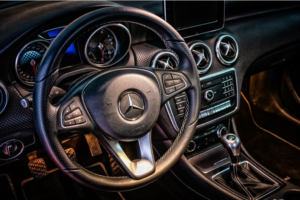Brake issues can be daunting if you do not know what’s affecting them. For example, you might have questions: Will my brakes slip? Are they stable? Can I drive my motor vehicle? Can I push my car? Sometimes these issues can also be the cause of a car accident. When that happens, click here to know what you need to know after getting into a car accident.
It’s good enough to figure out what might be causing your difficulty until a mechanic starts talking about the need to replace this or that. If you don’t find your problem here, check out my article on brake noise, then look at the comments when you decide, or make a comment yourself that tells your story. Here are some of the brake issues that you need to keep in mind:
Brake Pedal Feels Soft When Braking
A main brake fluid reservoir can fail in two ways: externally or internally. Once the brake fluid reservoir is complete and there are no signs of a leak, it is usually an internal problem that cannot be detected by only looking at the master cylinder. If so, you should be able to see fluid in the carpet under the dashboard, just inside the brake pedal.
Steering Wheel Shakes When Braking
 There are many possible vibration sources, such as warped front rotors, hot spots (small defects) on your rotors caused by unnecessary heat, or brake pads. This brake pulse can be fixed relatively easily by having the rotors resurfaced (cheaper) or replaced (more expensive). You can replace the rotors if they are still thick. Each string contains a “minimum thickness” hole, typically molded into the rotor near the frog where the lug nuts are located. The rotor should be measured on the stage with a micrometer or caliper to determine whether it can be reworked.
There are many possible vibration sources, such as warped front rotors, hot spots (small defects) on your rotors caused by unnecessary heat, or brake pads. This brake pulse can be fixed relatively easily by having the rotors resurfaced (cheaper) or replaced (more expensive). You can replace the rotors if they are still thick. Each string contains a “minimum thickness” hole, typically molded into the rotor near the frog where the lug nuts are located. The rotor should be measured on the stage with a micrometer or caliper to determine whether it can be reworked.
Car Enters a Negative Zone While Braking
A car that only moves in one direction could be problematic and dangerous, and it might have to do with the caliper. The caliper can freeze if the dust cap that protects the piston in the parts breaks, water and dirt gets into the caliper’s metal and cause rust and corrosion. Another possibility is that the pistons have been bent due to brake work or a possible car accident and can no longer move freely, causing the caliper to freeze and limit the pads’ pressure.
The caliper can also freeze if the caliper’s sliding pins are no longer lubricated because they have not been properly stored. You are likely to purchase reconditioning equipment to purchase calipers. However, they are challenging to discover, along with their caliper, may not be worth returning. Buying a new caliper might be more expensive, but it will add to the cost along with the time saved. The caliper plunger must fit into its bore without getting stuck.

